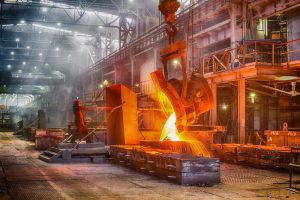In the quest for sustainable energy solutions, every aspect of the energy industry is under scrutiny for its efficiency and environmental impact. One often overlooked but crucial component in this equation is the conveyor belt system. While it may seem mundane, conveyor belts play a significant role in maximizing energy efficiency across various sectors of the energy industry. In this blog post, we’ll explore how conveyor belts contribute to energy conservation, reduce operational costs, and promote sustainability in the energy sector.
Energy Consumption in the Energy Industry: The energy industry is inherently energy-intensive, requiring substantial power for extraction, processing, and distribution. From coal mining to oil refining and renewable energy production, every step of the process demands considerable energy input. However, optimizing energy consumption is essential not only for cost reduction but also for minimizing environmental impact.
Conveyor Belts: Energy Efficiency Champions: Conveyor belts are ubiquitous in the energy industry, facilitating the movement of raw materials, fuels, and finished products throughout various stages of production and distribution. While their primary function is material transportation, conveyor belts also offer significant opportunities for energy savings and efficiency improvements.
- Automated Material Handling: One of the key ways conveyor belts contribute to energy efficiency is through automated material handling. By replacing manual labour with automated conveyor systems, energy consumption associated with human-powered tasks is eliminated. This not only reduces labor costs but also minimizes energy expenditure, as automated systems can operate continuously with precision and consistency.
- Optimization of Material Flow: Efficient material flow is essential for minimizing energy waste in the energy industry. Conveyor belts play a vital role in optimizing material flow by transporting materials seamlessly from one processing stage to another. By eliminating bottlenecks and reducing downtime, conveyor systems ensure a smooth and uninterrupted workflow, thereby conserving energy and maximizing productivity.
- Reduction of Transportation Costs: Conveyor belts offer a cost-effective alternative to traditional transportation methods such as trucks and haulage vehicles. By transporting materials over long distances with minimal energy expenditure, conveyor systems reduce transportation costs and associated fuel consumption. Additionally, conveyor belts can be powered using renewable energy sources such as solar or wind power, further reducing carbon emissions and promoting sustainability.
- Energy-Efficient Design and Technology: Advancements in conveyor belt technology have led to the development of energy-efficient designs and components. From lightweight materials to low-friction coatings and regenerative braking systems, modern conveyor belts are engineered for maximum energy efficiency. By minimizing energy losses during operation, these innovative technologies contribute to overall energy savings and environmental stewardship.
Case Study: Renewable Energy Production Facility To illustrate the impact of conveyor belts on energy efficiency, let’s consider a case study of a renewable energy production facility. In such facilities, conveyor belts are used to transport biomass, solar panels, or wind turbine components throughout the manufacturing process. By implementing energy-efficient conveyor systems and optimizing material flow, the facility can reduce energy consumption, lower operational costs, and increase overall productivity.
Conclusion: In conclusion, conveyor belts play a crucial role in maximizing energy efficiency in the energy industry. By automating material handling, optimizing material flow, reducing transportation costs, and incorporating energy-efficient design and technology, conveyor systems contribute to significant energy savings and environmental sustainability. As the energy industry continues to evolve towards cleaner and more efficient solutions, the importance of conveyor belts in achieving these goals cannot be overstated. By investing in energy-efficient conveyor systems, energy companies can not only improve their bottom line but also contribute to a greener and more sustainable future.





